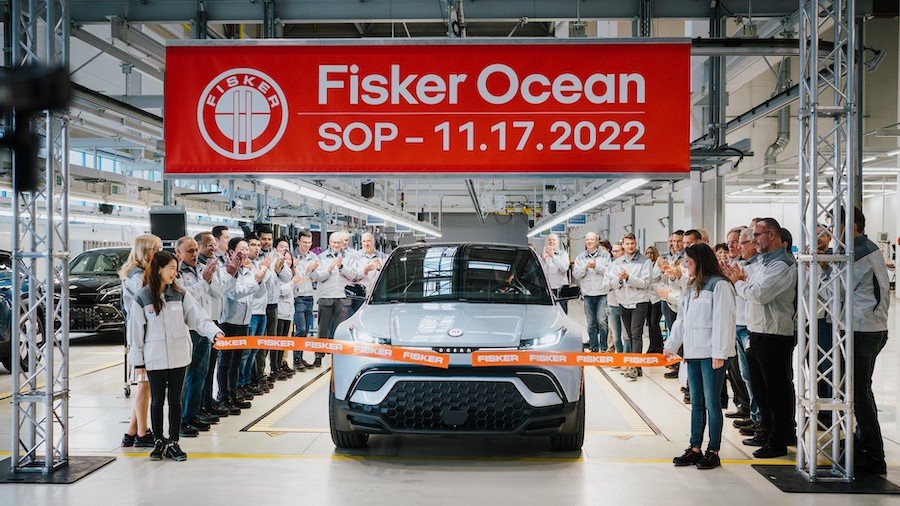The moment Fisker Ocean owners have been dreading is here. Fisker Group Inc., the operating subsidiary of troubled California-based EV startup Fisker Inc., officially filed for Chapter 11 bankruptcy protection in Delaware yesterday, citing “various market and macroeconomic headwinds.”
The company said in a statement that it is in “advanced discussions with financial stakeholders regarding debtor-in-possession financing and the sale of its assets.” In other words, the maker of the all-electric Ocean SUV is looking for someone to buy whatever remains of the company after months of turmoil.
Production of Fisker’s sole product was paused at Magna’s factory in Austria last month as inventory piled up and prices were cut with hopes of getting some much-needed cash. A week later, Fisker’s Austrian subsidiary filed for reorganization, and now the company as a whole is officially going down the bankruptcy route.
This is the second time in just 10 years that owners of a car that bears CEO Henrik Fisker's name have had to go through the uncertainties that are associated with the downfall of the company that built their cars. The first time was when Fisker Automotive, the company that built the Karma extended-range EV, went under in 2014. (The two companies had the same founder, but are separate entities.)
In modern times, Fisker Inc.’s financial woes were clear from the beginning of the year when it became known that the company burned through roughly $70 million per month on average in 2023 for a total of nearly $1 billion. Most EV startups burn immense amounts of capital in their early years, if they can endure them, but Fisker had its own unique challenges with its "asset-light" business model: depending on outside contractors to build the cars, while it focused on design and the customer experience. But Fisker spent much of the past year dealing with problems on the sales and repair side: primarily, getting cars to customers, quality issues buyers did not expect from an $80,000 luxury EV, repairing issues that came up and supplying parts for those repairs.
Meanwhile, the company was said to be beset by turmoil within, struggling with cash flow, reportedly mercurial founders, inadequate customer service and being seemingly unprepared for the intense logistics of running a car company.
Originally, Fisker planned on building 20,000 to 23,000 Ocean EVs at its contract manufacturer in Austria but ended up assembling roughly 11,000 in total, with about 5,000 cars still sitting in inventory, according to our calculations.
“Fisker has made incredible progress since our founding, bringing the Ocean SUV to market twice as fast as expected in the auto industry and making good on our promise to deliver the most sustainable vehicle in the world,” said a Fisker spokesperson in the official Chapter 11 announcement.
“We are proud of our achievements, and we have put thousands of Fisker Ocean SUVs in customers’ hands in both North America and Europe. But like other companies in the electric vehicle industry, we have faced various market and macroeconomic headwinds that have impacted our ability to operate efficiently. After evaluating all options for our business, we determined that proceeding with a sale of our assets under Chapter 11 is the most viable path forward for the company,” the spokesperson added.
The company said that it would file all the necessary motions to ensure its reduced operations are able to continue, including paying employee wages and benefits, preserving certain customer programs and compensating needed vendors on a go-forward basis.
Fisker boasted that being an "asset-light" automaker allowed it to bring its first EV to the market faster than the industry average. But that same mentality could lead to big issues for Ocean EV owners, as the company has a paper-thin stock of spare parts, making simple repairs close to impossible. It could also make the company unattractive to potential buyers, as Fisker doesn't have its own manufacturing facility, instead relying on Magna's manufacturing expertise to put together a working car.
Related News

